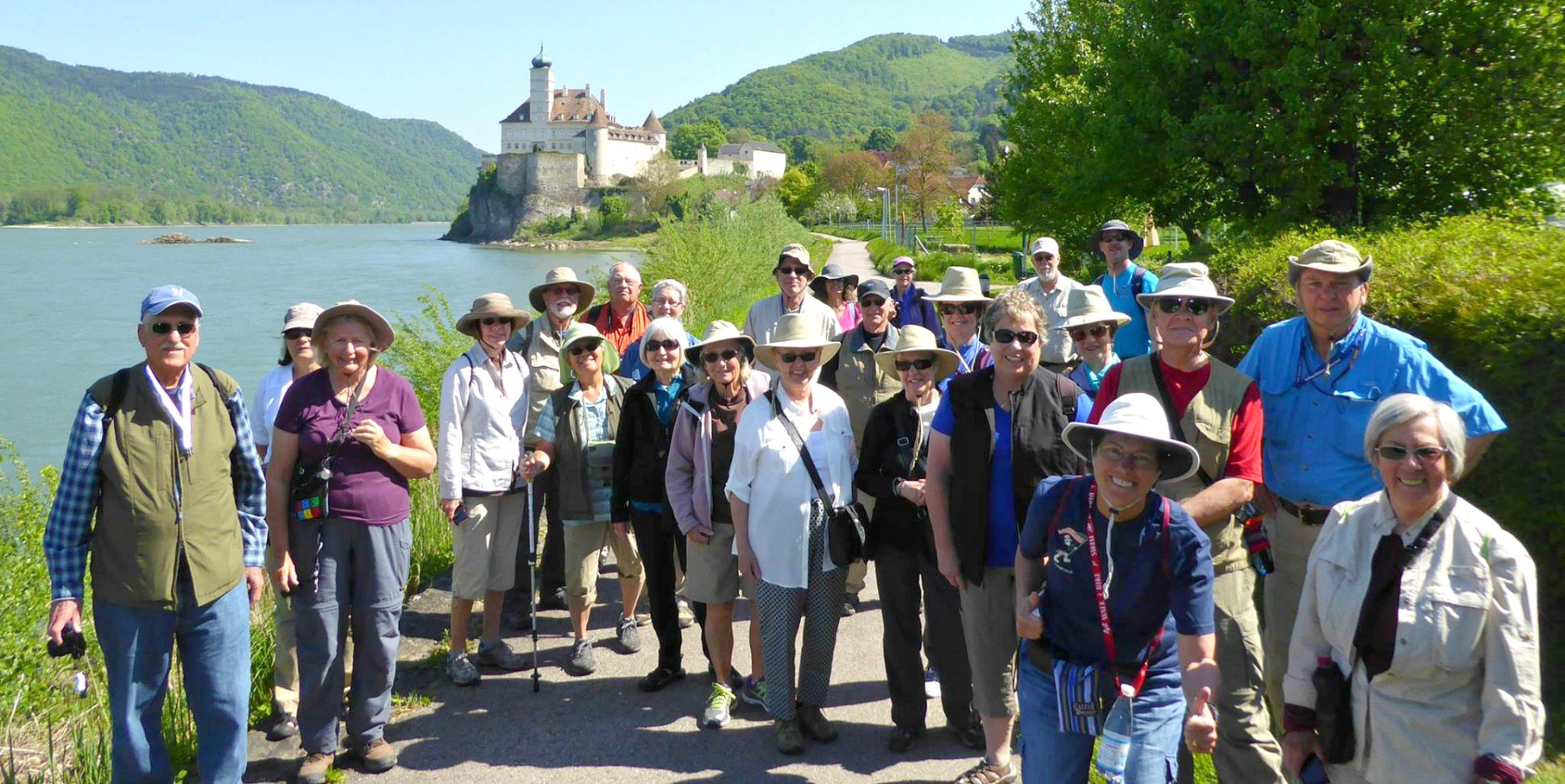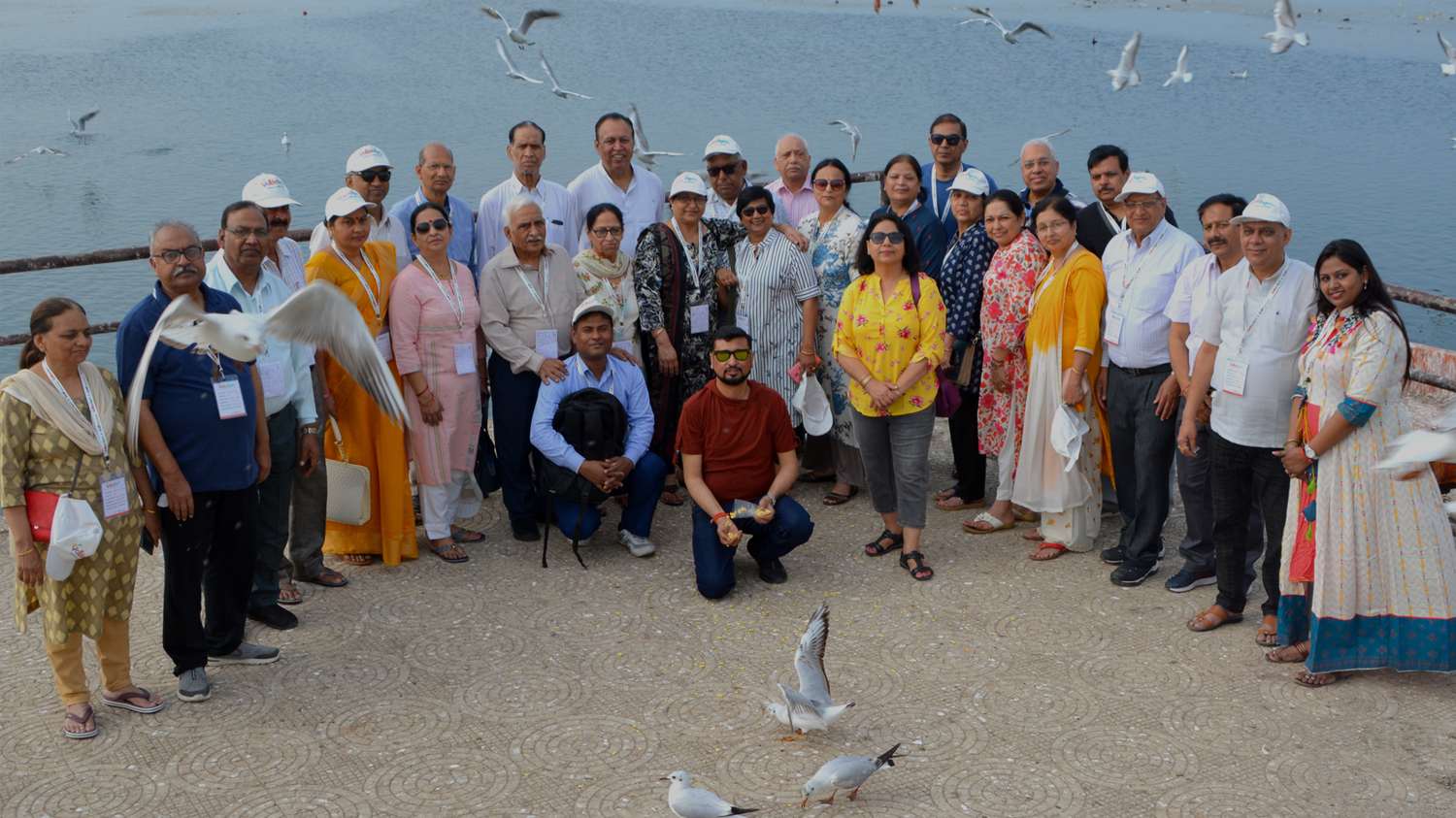Small group travel for seniors is experiencing a surge in popularity, offering a unique blend of adventure, companionship, and ease. This carefully curated travel style caters to the specific needs and desires of older adults, addressing concerns about accessibility, pace, and social interaction. The focus is on creating memorable experiences while prioritizing comfort and safety, making it an attractive option for those seeking enriching travel opportunities in their later years.
This article delves into the key aspects of this growing market, exploring the demographics and motivations of senior travelers, outlining the design of ideal small group tours, and discussing effective marketing and operational strategies. We also examine crucial elements like accessibility, inclusivity, and risk mitigation to ensure a positive and enriching travel experience for all participants.
Understanding the Senior Travel Market: Small Group Travel For Seniors
The senior travel market is a significant and growing segment of the tourism industry, representing a substantial opportunity for travel providers. Understanding the specific needs, desires, and concerns of this demographic is crucial for success in this niche. This analysis explores the key characteristics of seniors interested in small group travel, their primary concerns, motivations, and preferred communication channels.
Senior Traveler Demographics and Psychographics
The senior travel market encompasses a broad range of individuals, typically aged 65 and older, with diverse backgrounds, lifestyles, and financial capabilities. However, some common threads emerge. Many are active retirees with disposable income and a strong desire to explore the world. Psychographically, they often value comfort, safety, and convenience, seeking enriching experiences that cater to their interests and physical abilities.
This segment is not homogenous; some are adventurous and seek physically demanding trips, while others prefer relaxed itineraries with ample downtime. A significant portion are interested in culturally immersive experiences, prioritizing learning and personal growth over purely recreational activities. The increasing number of healthy, active seniors with financial means is driving significant growth in this sector. For example, the AARP reports a steady increase in travel spending among its members year after year.
Top Concerns of Seniors Regarding Group Travel
Three key concerns consistently surface when seniors consider group travel: health and safety, physical accessibility, and social compatibility. Concerns about potential health emergencies while traveling, and access to adequate medical care, are paramount. The suitability of accommodations and tour activities for varying levels of physical mobility is another major factor. Finally, the social dynamics of the group, ensuring compatibility with fellow travelers, are crucial for a positive experience.
Many seniors prefer smaller groups to foster a sense of community and avoid overwhelming crowds. For instance, a survey conducted by a major travel insurance provider showed that 70% of respondents aged 65+ cited health and safety as their top concern when planning trips.
Motivations for Choosing Small Group Travel
Seniors choose small group travel over independent travel or large group tours for several reasons. The intimate setting of a small group fosters a stronger sense of camaraderie and shared experience. This personalized attention allows for a more flexible and customized itinerary, catering to individual preferences and pace. The smaller group size also enhances safety and reduces the risk of getting lost or separated.
Furthermore, the expertise and support provided by a dedicated tour guide offer peace of mind and alleviate logistical stress. For example, many companies specializing in senior travel offer pre-trip consultations and 24/7 emergency assistance, addressing specific needs and building trust.
Preferred Communication Methods for Reaching Senior Travelers
Reaching senior travelers effectively requires understanding their preferred communication channels. While email remains relevant, direct mail marketing, especially through targeted print publications, often proves more effective. Many seniors appreciate the tangible nature of brochures and printed materials. Furthermore, telephone outreach allows for personalized interaction and addressing specific queries. Utilizing trusted sources of information, such as senior-focused publications and organizations, is crucial for building credibility and trust.
Online advertising should focus on user-friendly websites with clear, concise information and large, easily readable fonts.
Logistics and Operations

Smooth logistics and efficient operations are paramount for successful senior group travel. Failing to address the unique needs of this demographic can lead to dissatisfaction, safety concerns, and ultimately, damage to a tour operator’s reputation. Careful planning and attention to detail in transportation, emergency preparedness, and risk mitigation are crucial.
Appropriate Transportation for Senior Travelers
Selecting the right transportation significantly impacts the overall senior travel experience. Larger buses, while potentially more economical, can be less comfortable and maneuverable, making boarding and disembarking challenging for seniors with mobility issues. Smaller coaches, perhaps with a maximum capacity of 25-30 passengers, often offer a more personalized and accessible experience. Features like wider aisles, comfortable seating with ample legroom, and easy access restrooms are essential.
Furthermore, the choice of vehicle should consider the type of terrain and distances involved in the itinerary. For instance, a smaller, more agile vehicle might be preferable for navigating narrow, winding roads in mountainous regions. The accessibility features must be clearly communicated to potential travelers, including details about the number of wheelchair spaces, the presence of ramps or lifts, and the availability of assistance for boarding and alighting.
Managing Potential Health Concerns and Emergencies, Small group travel for seniors
A comprehensive plan for managing health concerns and emergencies is crucial. Before the tour commences, a detailed medical questionnaire should be completed by each participant, outlining any pre-existing conditions, allergies, or medications. This information allows for proactive measures, such as arranging for necessary medications to be available throughout the trip and informing the group leader of any potential health risks.
The tour group should include at least one trained first-aider, ideally with experience handling age-related health issues. Furthermore, 24/7 access to emergency medical services should be ensured, possibly through partnerships with local healthcare providers or travel insurance companies offering emergency medical evacuation services. A clearly defined communication protocol for emergencies should be established, ensuring rapid response and information dissemination to relevant parties, including family members of participants.
Risk Mitigation Strategies for Small Group Senior Travel
Three key risk mitigation strategies are essential. First, thorough pre-trip planning, including meticulous itinerary development and careful selection of accommodations and activities suitable for the physical capabilities of the group, minimizes the potential for accidents or incidents. Second, comprehensive travel insurance, including medical coverage, trip cancellation insurance, and emergency assistance services, provides a safety net against unforeseen circumstances.
For example, a policy that covers medical evacuation would be particularly valuable. Third, establishing clear communication channels and protocols, including daily check-ins with participants and designated emergency contacts, ensures that any issues are addressed promptly. This also includes having a backup plan for activities or transportation in case of unexpected events.
Creating a Detailed Pre-Trip Information Package
A well-structured pre-trip information package is vital. This document should include a detailed itinerary, outlining daily activities, transportation schedules, and accommodation details. Crucially, it should contain emergency contact information, including local emergency numbers, the tour operator’s contact details, and the designated emergency contact person for the group. The package should also include information on local customs, recommended attire, and any necessary vaccinations or health precautions.
A packing list tailored to the climate and activities planned should be provided, along with instructions on what medications to bring and how to manage them throughout the trip. Finally, copies of any necessary travel documents, such as passports and visas, should be included, along with instructions on how to access further assistance if needed.
Small group travel for seniors offers a compelling solution for those seeking enriching travel experiences tailored to their specific needs and preferences. By carefully considering the unique aspects of this demographic, tour operators can create unforgettable journeys that prioritize comfort, safety, and cultural immersion. The continued growth of this sector highlights a growing demand for accessible, engaging, and well-supported travel options for older adults, ensuring a vibrant and rewarding travel experience in their golden years.
Notice senior vacations for recommendations and other broad suggestions.


